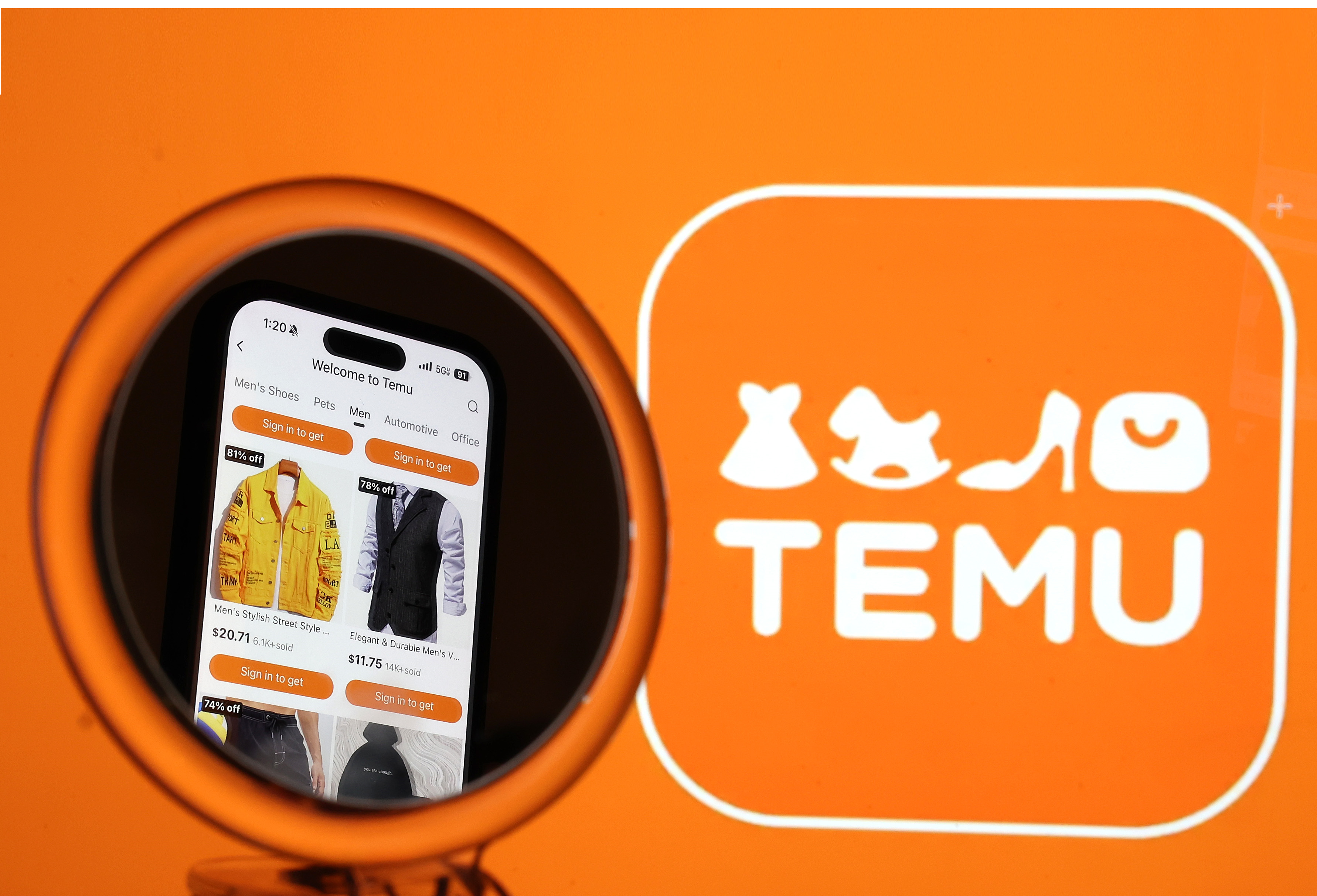How this Chinese shopping app took over the world and turned into the ultimate ick
Offering users the chance to ‘shop like a billionaire’ in a cost of living crisis, Temu, the Chinese e-commerce giant, is now the most downloaded app in the English-speaking world. But, the tide may be turning , says Anthony Cuthbertson, who looks at what’s behind the growing backlash


If you have searched online for “cheap shoes” this year – or “cheap toys”, “cheap bowls”, “cheap clothes”, “cheap gadgets”, “cheap cushions” or “cheap suitcases” – then there is a strong chance that you have come across Temu. In less than two years, the e-commerce firm has grown from nothing to become the most downloaded app in the English-speaking world.
Temu’s push to the top of your Google results is the outcome of a hyper-aggressive marketing campaign, which has seen the brand appear in some of the most lucrative spots in existence. A 2024 Super Bowl ad urged viewers to “shop like a billionaire” through an app that promises to be an “everything store”.
Beyond the shoes, toys, clothing and fashion are products that most people are probably unaware even exist – and some products that probably do not actually need to exist.
There are shower caps for a single ear, bibs to catch beard trimmings and headlights for shoes. (There are nearly 40 million posts on TikTok related to “Weird items on Temu”.)
Countless items are listed for under £1 – from scissors to socks – with Temu reportedly operating at a loss of roughly $30 for every order currently placed on its site. These ultra-low prices and the ad blitz, which has cost more than $5bn since its launch in September 2022, are all aimed at achieving growth at a never before seen rate for an online retailer.
But it is not just the low prices and the multibillion-dollar ad blitz that has brought about Temu’s phenomenal rise. The app offers a whole new way to shop, combining the urgency of a gameshow with the peculiar allure of a daytime shopping channel. The app seeks to gamify the shopping experience, with lightning deals, countdown timers on sales and virtual spinning wheels for different discounts.
The experience it seeks to induce is similar to that of a “treasure hunt”, according to Shasha Wang, a senior lecturer at Queensland University of Technology in Australia, where Temu is also the most downloaded app. Dr Wang, who has studied Temu’s popularity, notes that its arrival came at a time of increasing economic hardship for consumers.
“Temu entered the market at a time when consumers were grappling with global inflation, leading them to seek ‘value’,” Dr Wang wrote in an article in September. “Unlike other e-commerce platforms that focus on functional benefits such as saving money, Temu caters to consumers’ emotional needs. It overlays the shopping experience with the idea of ‘shopping like a billionaire’ – which also aligns with its value-based strategy.”

Temu’s popularity in the UK and US, where it had more downloads than TikTok and Instagram combined last year, has left its rivals scrambling for ways to compete. Last month, Amazon reportedly called a private meeting to unveil a new discount shopping app that would connect Chinese suppliers directly with shoppers in the US – following the same model as Temu.
Amazon has not confirmed these reports, which first appeared on CNBC and The Information, with a spokesperson telling The Independent that the company is “exploring new ways to work with our selling partners to delight our customers with more selection, lower prices, and greater convenience”.
But Temu’s success has not come without controversy. Last November, an investigation by Which? alleged that illegal weapons such as folding knives and batons were appearing on the online marketplace at “extremely cheap” prices.
Three months later, a separate investigation from Which? warned that electric heaters sold on Temu could explode, cause electric shocks or start house fires.
“Problems with dangerous products are only going to get worse if new tech giants like Temu continue to be held to weaker standards than high street retailers,” said Sue Davies, head of consumer protection policy at Which?.
Temu has since removed the electrically unsafe heaters and claims to employ a “comprehensive approach to vetting the sellers and products” on its platform. A spokesperson told The Independent that it requires “essential documents, such as certifications, labels, testing reports, and registration records before allowing any listings to go live on the platform”.
For some, Temu provides a place in the market that no other retailer has filled – or even realised existed. For others, its arrival represents peak consumerism: the final death rattle of late-stage capitalism.
As one Reddit user wrote after viewing Temu’s Super Bowl ad: “It gives me ick for reasons I couldn’t explain… Also, as if any billionaire would ever TOUCH Temu’s stuff.”
Join our commenting forum
Join thought-provoking conversations, follow other Independent readers and see their replies
Comments

Bookmark popover
Removed from bookmarks